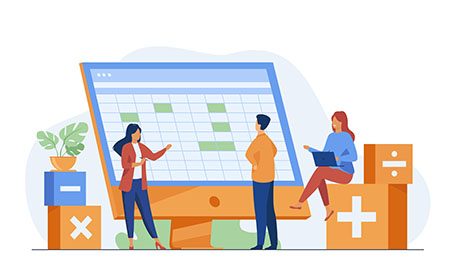Annual Accounting Reports
If you run a business in the United Kingdom, then it is vital that you know about accounts. On this page, we are going to talk to you a little bit about some of the things you need to know for filing accounts in England, Wales, Scotland, and Northern Ireland.
Why is it important to do accounts?
For starters: filing accounts are a legal obligation for any business. If you do not file accounts for your company, then you will be dealing with huge financial penalties, and potential prison time.
However, even if you put that to one side, it is still vital that you prepare accounts for your business. It will allow you to see how your company is performing. Remember; accounts will allow you to see the profit and loss for your company. They will also allow you to see all your income and expenditure. If you are trying to attract investment in your business, then you will be required to hand potential investors accounts. This way they can see whether your business is a viable investment opportunity or not.
Can you do your own accounts?

You can. However, for most businesses it is not recommended. If you make mistakes, then you will have to deal with fines, and there is a strong chance that you can be banned from being a company director. This means that you could lose your company!
For small businesses i.e. ones making no more than a few hundred pounds of profit each year, then you may be able to prepare your own accounts. There is little that can go wrong with that. However, if you are a larger business, with daily takings of more than a few hundred pounds, then you will need to work with a professional accountant.
Is an accountant similar to a bookkeeper?
Sort of. Although, a bookkeeper is not an accountant, and they will not be able to file your accounts for you. The job of a bookkeeper is mostly to keep track of your day-to-day business operations. This means dealing with invoices and payroll. While some of their functions have a bit of an overlap with an accountant, they are not the same. You will struggle to find a bookkeeper that will file accounts for you.
An accountant solely exists to file your company accounts. This means producing profit and loss statements, helping you to find ‘deductibles’ on your accounts (i.e. expenses that can reduce your tax obligations). They will also be able to help you submit your accounts to HMRC or Companies House.
What information should you give your accountant?

This will be dependent on the accountant that you work with. They will likely require you to submit all details of income and any expenses that you have made. They will also likely need access to bank statements for your business. They may also need access to certain invoices.
If you work with a bookkeeper too, then they are likely to be able to prepare all of the information that you need to hand over to the accountant. If the accountant needs more information, then they will tell you.
How do you submit your accounts?
If you run a Limited Company in England and Wales, then you will need to submit your accounts to two different places:
If you are a sole trader, then you will only need to submit your accounts to HMRC. Most accounts are filed online nowadays, although both HMRC and Companies House maintain an option to send in paper accounts if you wish to do so.